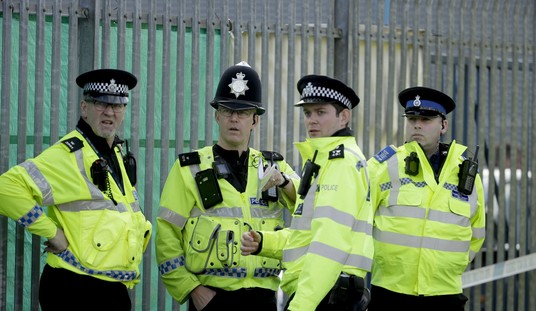“There’s so much drama in these talks,” CNN’s Reza Sayah reports this morning, but he may be the only one who thinks that about the decade-plus efforts to get Iran to abide by the terms of the nuclear non-proliferation treaty. Sayah even notes what happened the last time everyone got excited about supposed progress in the last round of P5+1 talks with Tehran, which is … nothing at all. Yet here we are again, and while jaw-jaw is preferable to war-war, it’s also a great way for Iran to stall the West until it has its own nuclear weapons, too:
Yesterday, the buzz centered on a supposed concession from Iran that would have allowed the P5+1 to skip an explicit acknowledgment of Iran’s right to enrich uranium. That right does exist under the non-proliferation treaty as long as Iran complies with IAEA inspections of all its facilities, which Iran actively blocked after the 2003 exposure of its nuclear program. The concession didn’t include a surrender on actual enrichment, either, but just that the Western nations in the talks didn’t have to explicitly acknowledge those rights, which means … nothing at all.
In a televised speech on Wednesday, Ayatollah Khamenei said Iran’s negotiators had been set clear limits before they travelled to Switzerland for two days of meetings with representatives of the P5+1 – the US, UK, France, China and Russia, plus Germany.
They failed to agree a deal at a previous round of talks earlier this month mainly because of what diplomats said was Iran’s insistence on formal recognition of its “right” to enrich uranium and France’s concerns about the heavy-water reactor being built at Arak.
“We do insist that we will not step back one iota from our rights,” Ayatollah Khamenei said.
But he added: “We do not intervene in the details of these talks. There are certain red lines and limits. These have to be observed. They are instructed to abide by those limits.”
France apparently had to intervene to prevent Barack Obama from surrendering on Arak. Think about the irony of that for a moment. Bloomberg’s Marc Champion explains why this may be the most critical issue still left to possibly change through talks:
Arak, an IR-40 research reactor, has received less attention because it isn’t yet working. Construction is due to finish in about a year, and then Iran has to produce and test the fuel to insert, and run the plant for a period before it creates the first spent fuel that could be reprocessed for use in a weapon. So the threat of Iran having in place a second route to producing fissile material for a bomb is several years away at the least.
For this reason a number of experts have said Arak can be ignored until the later comprehensive talks, and no doubt it’s why some of the P5+1 thought it was acceptable to skip it in the interim deal. This is surely wrong, because it isn’t possible to predict how long the interim deal will in fact be operative — a similar suspension-for-talks arrangement in 2003 was strung out for two years, before collapsing.
If Iran were to complete Arak before a final settlement is reached, which is very possible, this would be significant. Once the reactor is complete it can be fueled, at which point destroying it through airstrikes would be unthinkable, due to the radioactive fallout this would create.
You don’t have to favor airstrikes to think allowing continued construction at Arak is a bad idea. I think airstrikes are the worst option available to resolve this dispute. Still, with the military threat off the table, the U.S. would have to rely on economic sanctions alone to persuade the Iranian regime not to complete what it transparently has spent two decades and huge sums of money and diplomatic capital trying to achieve: the capacity to build nuclear weapons. The history of sanctions suggests that wouldn’t work, and a counterproductive Israeli military action would become more likely.
Arak is ultimately a manageable problem, as a recent paper from the Carnegie Endowment for International Peace explains. This is a big, above-ground facility that would be easy to monitor. A final agreement would ensure that spent fuel from Arak was exported for reprocessing. If Arak’s construction stops now, these terms for its operation can be worked out in the final settlement.
It’s also another reason why Iran will have incentive to continue its stalling techniques honed over the last decade, offering non-concession concessions and then refusing to follow through on threadbare pretexts. The only real drama is waiting for Iran’s inevitable Lucy Van Pelt impression, and who gets to be Charlie Brown this time.








Join the conversation as a VIP Member